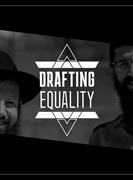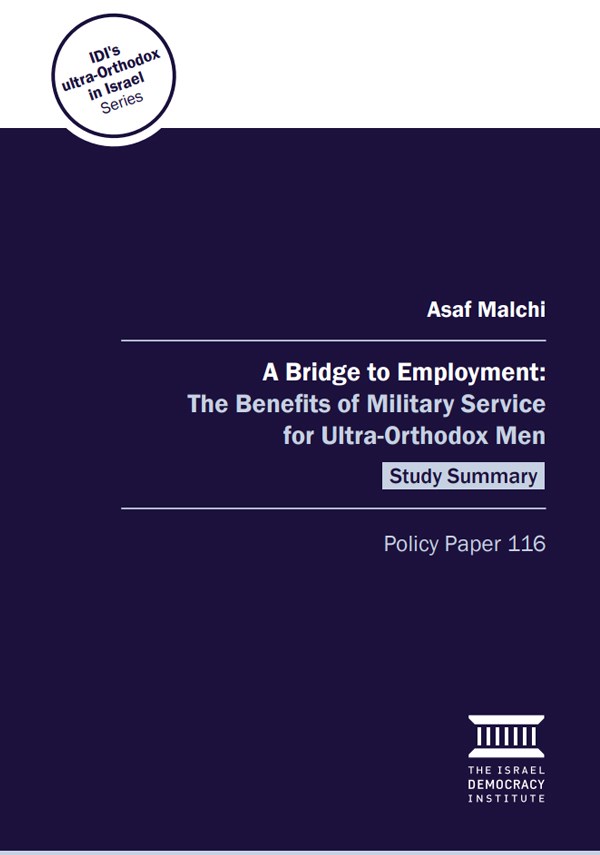

Publications Regarding Haredi Conscription
Articles

12 Necessary Changes for the Government's Conscription Bill (Amendment 26)
Written By: Adv. Shlomit Ravitsky Tur-Paz, Adv. Noa Goshen, Prof. Amichai Cohen
IDI experts argue for a universal obligation to serve, as opposed to the model of the latest "conscription" bill, which would be harmful to Israel's security and social solidarity. However, if the present legislation does move forward, the points presented here would mitigate the harm in the proposed bill.

Haredim in Israel 2050: Demographic Projections and Economic and Security Scenarios
Written By: Dr. Gilad Malach, Dr. Itamar Yakir, Roe Kenneth Portal
The following is an executive summary and key findings from a full study, which can be found in Hebrew here.

IDI President Yohanan Plesner on the 2026 Israeli Elections
Written By: Yohanan Plesner
Israel is entering a pivotal election year—its first since the judicial overhaul and the war that began on October 7, 2023. Throughout the year, IDI is asking its experts which issues will shape the election campaign. IDI President Yohanan Plesner is watching three key areas: national security, including efforts to advance regional stability and examine the failures surrounding October 7; ultra-Orthodox conscription, given the IDF’s manpower needs and the post-war reality; and Israel’s democratic character, as questions surrounding the rule of law and checks and balances return to the center of the public agenda.

Dr. Gilad Malach on TOI's "What Matters Now"
Written By: Dr. Gilad Malach, Amanda Borschel-Dan
IDI Research Fellow Dr. Gilad Malach joins host Amanda Borschel-Dan on the Times of Israel weekly podcast, What Matters Now. They discuss the contentious matter of ultra-Orthodox (Haredi) conscription, including the history of Haredi exemption from IDF service, modern cultural norms in Haredi society, and the current Haredi conscription proposal making its way through Knesset.

The Haredi Demonstration in Jerusalem: A Struggle for Identity, Not Just For the (Non-)Conscription Law
Written By: Eliyahu Berkovits
Behind the call to oppose the “persecution of Torah learners” lies a different struggle: an attempt by Haredi society to unite its ranks and strengthen a communal identity that has been eroded by the growing pressures to integrate into Israeli society, especially after two years of war.

The Bismuth Outline for the Draft Exemption Law
Written By: Adv. Shlomit Ravitsky Tur-Paz

Yom Kippur Reflections: The Forgiveness Haredi Leadership Ought to Seek
Written By: Dr. Asaf Malchi, Adv. Shlomit Ravitsky Tur-Paz
Drawing on the prayer of atonement on Yom Kippur, the authors call on Israel's ultra-Orthodox (Haredi) leadership to seek forgiveness for refusing to share in Israel’s burdens, denying opportunity to its youth, and clinging to privilege without meeting obligations.

Two Years since Oct. 7: Majority of Israelis say the Time Has Come to End the War
Written By: Prof. Tamar Hermann, Dr. Lior Yohanani, Yaron Kaplan, Inna Orly Sapozhnikova
A special survey released as Israel prepares to mark two years since the start of the war on October 7, 2023 finds: 66% of Israelis say the time has come to end the war in Gaza – up 13 percentage points since this time last year. The top reason Israelis say the war should end is the endangerment of the hostages, among both Jews (50.5%) and Arabs (34.5%). 64% of Israelis think Netanyahu should take responsibility for Oct. 7 and resign, either now (45%) or after the war (19%).

Leaving the Country Among Yeshiva Students of Draft Age
Written By: Gabriel Gordon, Eliyahu Berkovits
One of the key sanctions under debate for Haredim who evade mandatory military conscription is a prohibition on leaving the country. By reviewing the extent and characteristics of Haredim traveling abroad, this analysis paints a picture of how such a sanction would impact Haredi society.

The Political Theater of the Haredi Conscription Compromise
Written By: Prof. Amichai Cohen
At its core, this is a debate if there should be a blanket exemption for Haredi men and a target number of recruits from the community each year, or if there should be a requirement to serve with a limited number of annual. Counterintuitively, the compromise proposed by the coalition could lead to an outcome that would actually remove from the agenda a meaningful draft of Haredim.

Sanctions on Haredi Draft Dodgers: Public Opinion Survey of Non-Haredi Jews
Written By: Adv. Shlomit Ravitsky Tur-Paz, Viterbi Family Center for Public Opinion and Policy Research

Not Studying, Not Serving—And Now, Not Funded
Written By: Dr. Asaf Malchi
The Attorney General recently gave instructions to halt government funding for yeshivot for young Haredim who have dropped out. These instructions promote the value of equality and may also help advance the status of the young men who have dropped out.

A Year Since the Supreme Court’s Conscription Ruling – Was It Real, or Just a Dream?
Written By: Adv. Shlomit Ravitsky Tur-Paz
Exactly one year ago, Israel's Supreme Court ruled—in a measured manner—that the state must follow its own laws on drafting Haredim. But of the 19,000 summons issued by early June 2025, only about 5% (996) reported to induction centers, and just 1.2% (232) were actually conscripted.

Enlisting Marginalized Young Haredim
Written By: Eliyahu Berkovits, Dr. Asaf Malchi

In a World Turned Upside Down, Israeli Politics is Business as Usual
Written By: Prof. Ofer Kenig, Dr. Dana Blander
The events of October 7, the judicial overhaul, continuous war, murderous violence on the streets, a spiraling cost of living—none of these have been enough to destabilize the coalition. Will it be the conflict over drafting yeshiva students that ultimately brings down the Netanyahu government?

Haredi Integration and Tax Payments – The Burden and the Potential | Executive Summary
Written By: Gabriel Gordon
This research was released ahead of the Israel Democracy Institute's annual Eli Hurvitz Conference on Economy and Society, 2025.

The Latest Haredi Enlistment Targets: Insufficient and Ineffectual
Written By: Adv. Shlomit Ravitsky Tur-Paz, Yohanan Plesner

Israelis Are United – It’s Time for Our Leadership to Follow Suit
Written By: Yohanan Plesner
Polls reveal that despite apparent polarization, Israelis are remarkably united on almost every issue of importance, prioritizing hostage release, ending Haredi draft exemptions, and anchoring a constitutional framework—leaving only their leaders out of step with the national consensus.

Haredi Politicians: One Hand Writes the Laws, the Other Undermines Them
Written By: Eliyahu Berkovits
Meir Porush, Minister of Jerusalem and Jewish Tradition, established a hotline advising yeshiva students to evade mandatory military conscription. Haredi leaders have been maintaining conflicting roles as state officials and acting community activists.

Majority of Israelis Support a Deal to Release All Hostages and End the War
Written By: Prof. Tamar Hermann, Dr. Lior Yohanani, Yaron Kaplan, Inna Orly Sapozhnikova
A majority of Israelis (57.5%) support a comprehensive deal for the release of all the hostages in return for an end to the war in Gaza; Most Israelis think the current situation in Syria serves Israeli interest (52.5%); 68% of all Israelis, as well as 60% of Likud voters, are opposed to a law exempting Haredim from military service, even if this would mean a dissolution of the Knesset and new elections.

Reserve Duty During the Iron Swords War by Religious Self-Definition
Written By: Dr. Ariel Finkelstein, Nadav Porat Hirsh
This study presents a survey of the distribution of reserve duty among the various religious groupings within the Jewish population, along with more in-depth analysis regarding the age and gender of reservists.

"As You Stand Silent" – Has October 7th Changed the Haredi Community? - English Introduction
Written By: Adv. Shlomit Ravitsky Tur-Paz

IDI Releases New Survey Findings on Haredim; Convenes Haredi & Arab Leaders to Advance Shared Society
Written By: Israel Democracy Institute
The Israel Democracy Institute’s Joan and Irwin Jacobs Center for Shared Society convened its annual conference to discuss key issues of shared society.

Don’t Let Haredi Leadership Stand in the Way of Haredim Who Want to Enlist in the IDF
Written By: Dr. Asaf Malchi
While the Haredi leadership is fighting against military service for yeshiva students, real change is already visible on the margins of Haredi society, with a growing desire among young men to serve in the IDF like other Israelis. What’s needed now is for the politicians, the religious leadership, and the government to adapt to the changes on the ground.

High Levels of Trust in IDF More than One Year Into the War, Except Among Ultra-Orthodox and Arab Israelis
Written By: Viterbi Family Center for Public Opinion and Policy Research, Center for Security and Democracy
A special survey assessing public opinion on matters of national security, presented at IDI's annual conference on Security and Democracy. The survey found support for a mandatory draft, and significant economic penalties for those who do not serve.

Early Childhood Daycare Subsidies in Israel in Different Sectors
Written By: Gabriel Gordon,
A survey of daycare subsidies in Israel and recommendations for improved criteria that would encourage participation in the labor market among the ultra-Orthodox.

The Two Coalitions Israel Needs Now
Written By: Yohanan Plesner
It is increasingly clear that Israel’s future depends on the forging of two coalitions. One is a multinational alliance determined to turn the Palestinian issue from a driver of conflict into an engine of peace. The other, is an internal Israeli coalition ready to pursue a series of bold social, economic, and political reforms.

Amid IDF draft effort, state to cut daycare subsidies for haredi families
Written By: Dr. Gilad Malach
IDI's Dr. Gilad Malach joined Kann English podcast to discuss the issue of ultra-Orthodox conscription and the ensuing termination of daycare subsidies for children of yeshiva students who refuse draft orders.

Haredi Yeshiva Students Are Being Called to IDF Enlistment Centers. What’s Next?
Written By: Adv. Shlomit Ravitsky Tur-Paz, Dr. Eran Shamir-Borer, Adv. Mirit Lavi
On Monday August 5, 2024 and Tuesday August 6, 2024—900 ultra-Orthodox yeshiva students were required to present themselves at IDF enlistment centers. Shlomit Ravitsky Tur-Paz, Dr. Eran Shamir-Borer and Mirit Lavi explain the next steps the IDF will need to take in order to enforce the legal obligation of conscription.

Ultra-Orthodox Draft Challenges and Objectives
Written By: Adv. Shlomit Ravitsky Tur-Paz
As the IDF issues the first batches of draft orders for ultra-Orthodox men, the following outlines the challenges, opportunities and objectives of an amended conscription law.

A Joint Effort: Integrating Haredim in the IDF
Written By: Prof. Daniel Statman
The IDF should do what it can to ease the transition of Haredim from the social frameworks in which they have grown up and been educated into the military, but it is also important for new conscripts to understand that the rules cannot be changed according to the preferences of every single soldier or group.

Workforce Participation of Haredi Yeshiva Students Under the Exemption Age
Written By: Gabriel Gordon
This study describes the employment trends among men registered in ultra-Orthodox yeshivas between the ages of 18-25. The findings are based on a reported work, or "legal work," so it is very likely that this is an underestimation of reality.

IDF - Ultra-Orthodox Conscription - What Happens Next?
Written By: Dr. Eran Shamir-Borer

So Haredi Men Must be Drafted. What Now?
Written By: Dr. Eran Shamir-Borer, Adv. Mirit Lavi
Nine Supreme Court Justices ruled unanimously that the state must act to enforce Israeli conscription legislation and apply it to Haredi men. For this to be realized the IDF and the defense establishment must also make significant changes. These are the issues the IDF should take into consideration.

Ultra-Orthodox Conscription | Supreme Court Ruling | Yohanan Plesner on CNN
Written By: Yohanan Plesner
"It's a matter of a change in the trajectory," says Yohanan Plesner, president of IDI following the Israeli Supreme Court ruling on the issue of ultra-Orthodox conscription.

A Sharp, Unequivocal, and Unanimous Supreme Court Decision to Draft Haredim
Written By: Prof. Suzie Navot
The Supreme Court ruling on June 25th addresses the question of whether the government is operating in accordance with the law. It determined that the state must act in accordance with the law and act to draft ultra-Orthodox. It also connects between the issue of exemptions and the criteria for eligibility for yeshiva budget funds.

Supreme Court Ruling on Haredi Draft | Yohanan Plesner on BBC News
Written By: Yohanan Plesner
"Basically we've entered into a new unknown terrain," says IDI President Yohanan Plesner.

Principles for a Fair Draft Law
Written By: Yohanan Plesner
Yohanan Plesner, President of IDI lays out the basic principles for a fair draft law.

The Economic Impact of Haredi (non) Enlistment
Written By: Adv. Shlomit Ravitsky Tur-Paz
What are the economic impacts of the Haredi blanket exemption and how would drafting the ultra-Orthodox benefit Israeli society and economy?

Tikun Leil Shavuot: Source Materials on Ultra-Orthodox IDF Service and Military Exemptions
Written By: Adv. Shlomit Ravitsky Tur-Paz, Prof. Benjamin Porat, Sources compiled by Yair Orvieto
Ahead of the Shavuot holiday, the Israel Democracy Institute is releasing a series of source materials for study during the "tikkun leil Shavuot" (the traditional Shavuot eve study session).

Haredi Enlistment According to the Supreme Court Justices: "We intend to decide"
Written By: Prof. Suzie Navot
The discussion in the Supreme Court yesterday was not about whether a law exempting yeshiva students harms the principle of equality. It was about a much more basic question: is the State of Israel acting in accordance with the principle of the rule of law—that is, can yeshiva students be exempted from enlisting in the IDF, when there is no law allowing for this.

A Historic Supreme Court Hearing on Haredi Conscription and Yeshiva Funding
Written By: Adv. Shlomit Ravitsky Tur-Paz
Israel's Supreme Court convened to hear arguments on the issue of drafting ultra-Orthodox yeshiva students who no longer are exempt from military service, and the legality of providing funding for yeshivas that enroll them as long as no new law has been legislated on this issue.

Haredi Conscription | Decision Time
Written By: The Israel Democracy Institute in Collaboration with Makor Rishon
A special collaboration with Makor Rishon includes updated data on conscription, information on shifting trends in Haredi public opinion, articles and columns by researchers at IDI.

Timeline: The Ultra-Orthodox and the IDF Draft
Written By: The Israel Democracy Institute
When did the ultra-Orthodox first receive an exemption from military service? How have Haredi demographics influenced this issue?
This is a timeline of the central milestones affecting the issue of Haredi conscription.

The latest military exemption law - a return to the 2022 (non-) conscription law
Written By: Yohanan Plesner , Adv. Shlomit Ravitsky Tur-Paz, Dr. Gilad Malach
The proposed law ignores the dramatic change in Israel's security situation since October 7 and does not address the need for more combat soldiers, nor does it respect the burden on the populations that already serve.
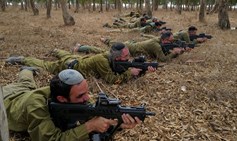
Quantity and Cost of Reserve Service in the Event that Haredim Enter Regular and Reserve Service in the IDF
Written By: Adv. Shlomit Ravitsky Tur-Paz, Gabriel Gordon
We examine the increased burden of reserve service that the defense establishment is seeking to impose on the population groups that already perform regular and reserve service, and the economic-budgetary implications of this step for the period through to 2050.
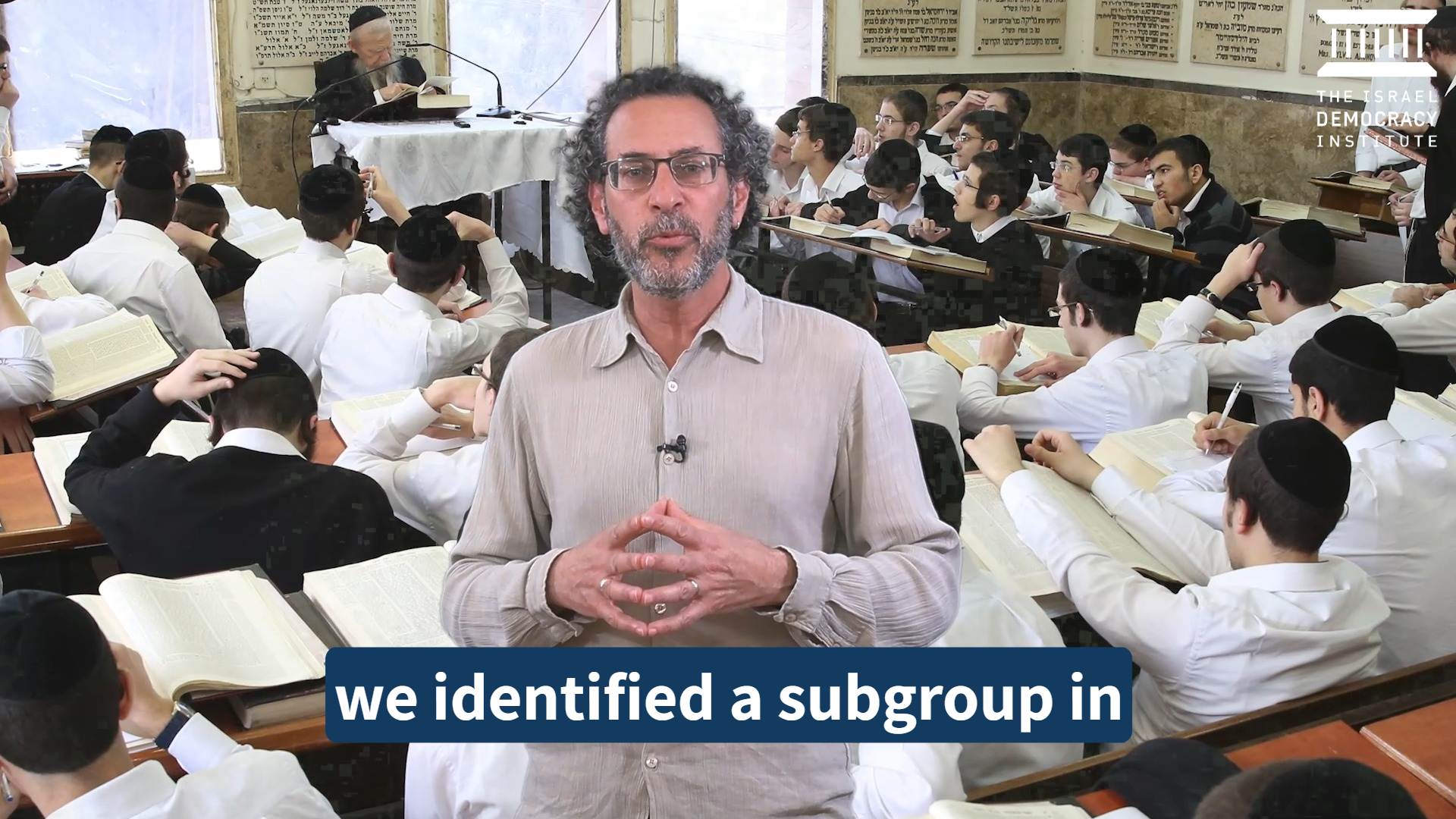
Alternative Yeshivas and Changing Perspectives Among Haredi Youth
Written By: Dr. Asaf Malchi
Dr. Asaf Malchi's research explores the perspective of yeshiva students, their personal and social challenges and highlights a subgroup of 'alterative yeshivas' and their shifting perspectives on vocational training and employment.
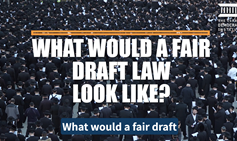
A Fair Draft Law, What Would That Look Like?
Written By: Dr. Gilad Malach
IDI's Dr. Gilad Malach explains what a fair draft law for the ultra-Orthodox would look like. One that would distribute the burden over Israel's security more equally while enabling young Haredi men to integrate into the job market.
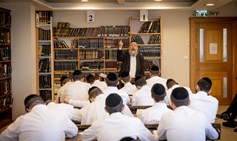
From the World of Torah Study to the World of Work: Social Challenges and Employment Potential Among Haredi Yeshiva Students
Written By: Dr. Asaf Malchi
This study was designed to assess the level of satisfaction among students in higher yeshivot (ages 17 and above), their personal and social challenges, and their attitudes toward possible alternatives to yeshiva studies, such as vocational training and employment.
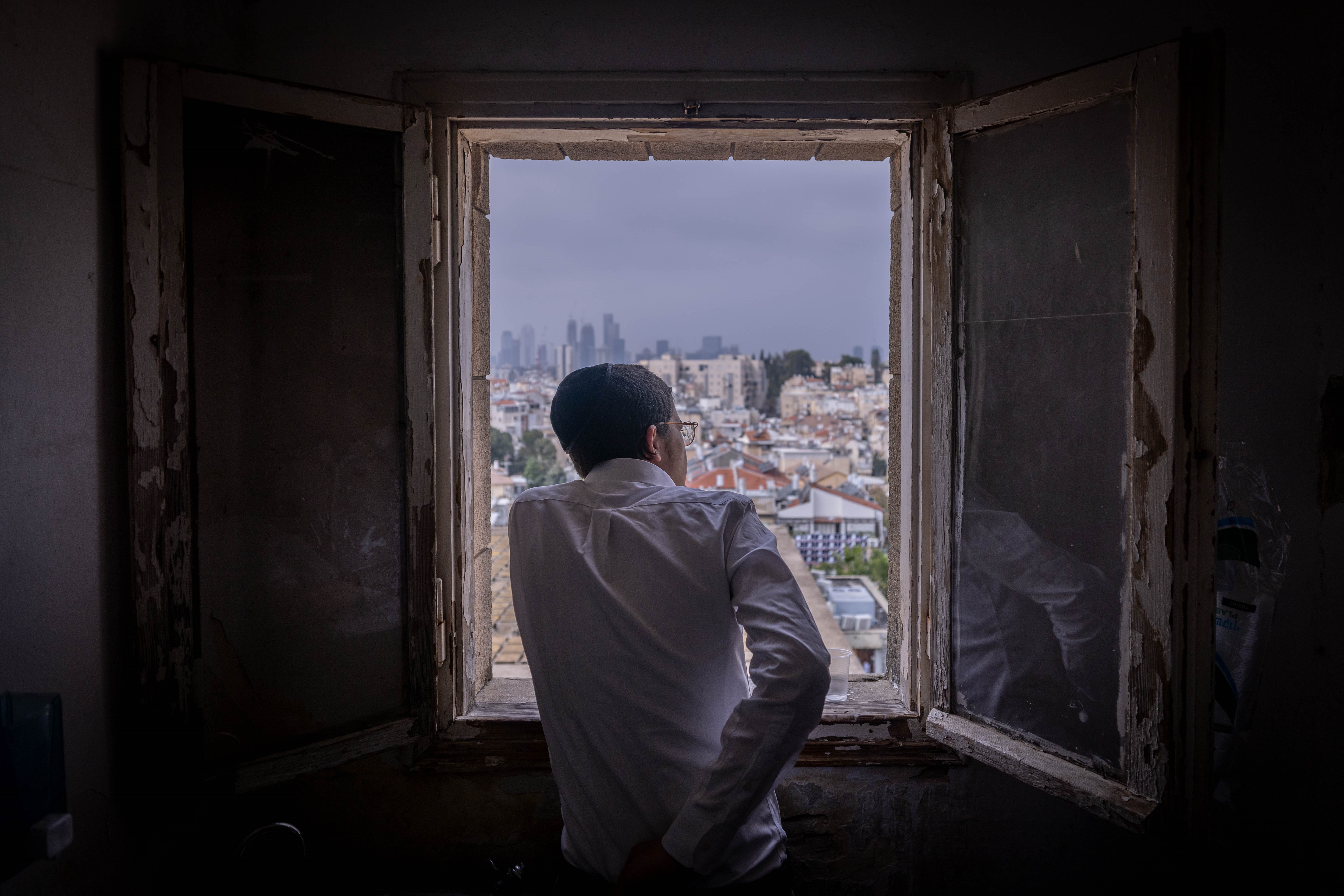
I, Too, Have Come to my Senses: It is Time to Rethink the Haredi Role in Israeli Society
Written By: Dr. Rivka Neriya Ben-Shahar
Dr. Rivka Neriya-Ben Shahar proposes a model that resembles the secular educational system of colleges and universities to identify the most gifted torah scholars, who would receive a generous stipend. Others must rethink their role as part of Israeli society.

Majority of Israelis give low ratings to Prime Minister Netanyahu; high ratings to IDF Chief of Staff
Written By: Prof. Tamar Hermann, Yaron Kaplan, Dr. Lior Yohanani
The majority of Israelis gave Prime Minister Netanyahu low ratings (57%), while IDF Chief of Staff Herzi Halevi topped the rankings of positive performance (48%). More than two-thirds of Israelis think we are on the verge of an all-out-war with Hezbollah – 69%.
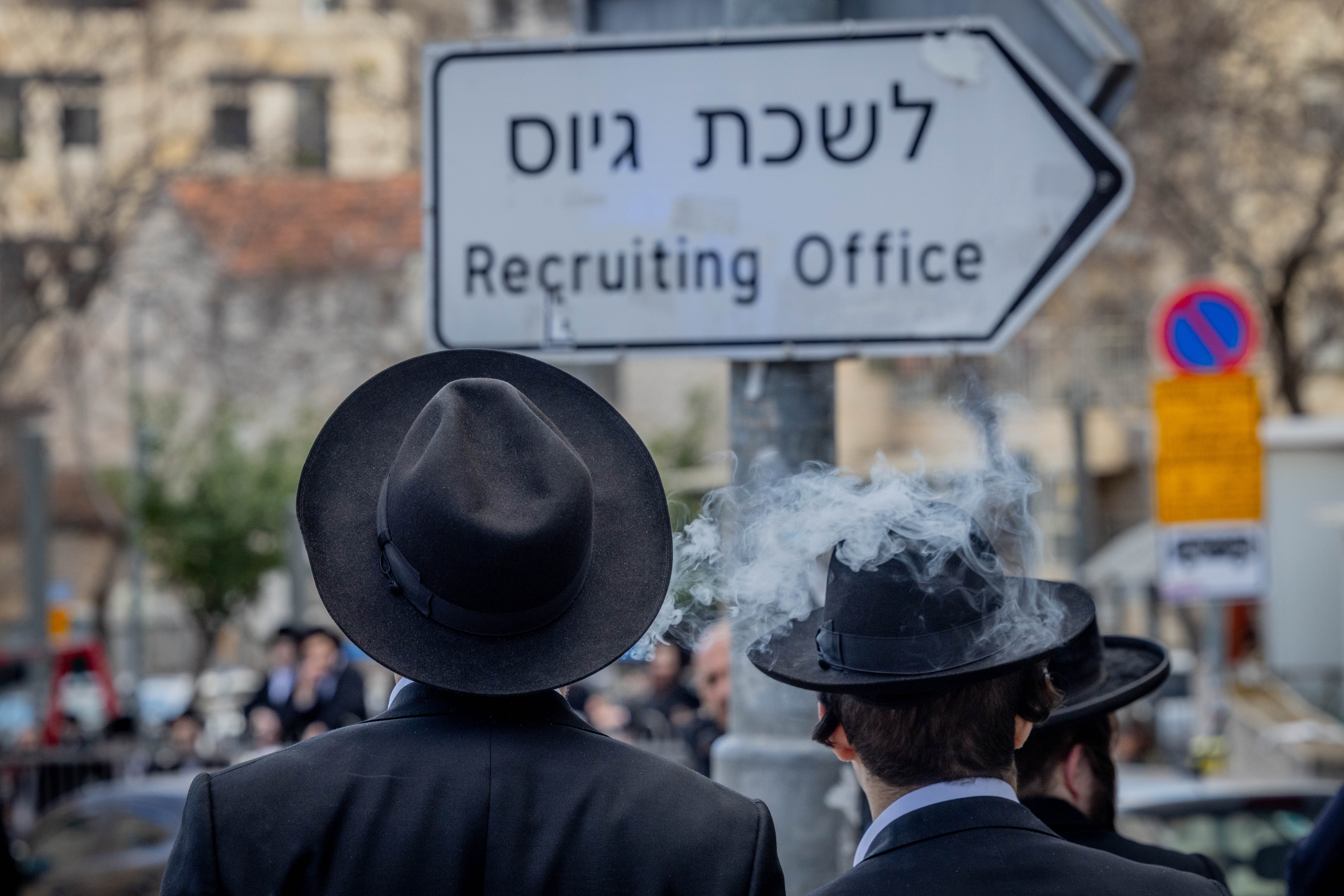
Response to the Government's Proposal for Haredi (non-) Conscription
Written By: Yohanan Plesner , Dr. Gilad Malach
Response to the Government's Proposal for Haredi (non-) Conscription by Yohanan Plesner, President of the Israel Democracy Institute, and Dr. Gilad Malach, Head of IDI's Ultra-Orthodox in Israel Program
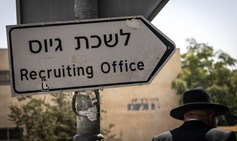
Military Service Law and Reserve Service Law Amendments (extension of mandatory and reserve service period): Professional Opinion
Written By: Yohanan Plesner , Dr. Eran Shamir-Borer, Prof. Amichai Cohen
The government wishes to amend the Military Service Law and Reserve Service Law due to the new security circumstances arising from the outbreak of the war in Gaza. While recognizing the immediate imperative to respond to IDF's personnel needs, we oppose these legislative proposals.
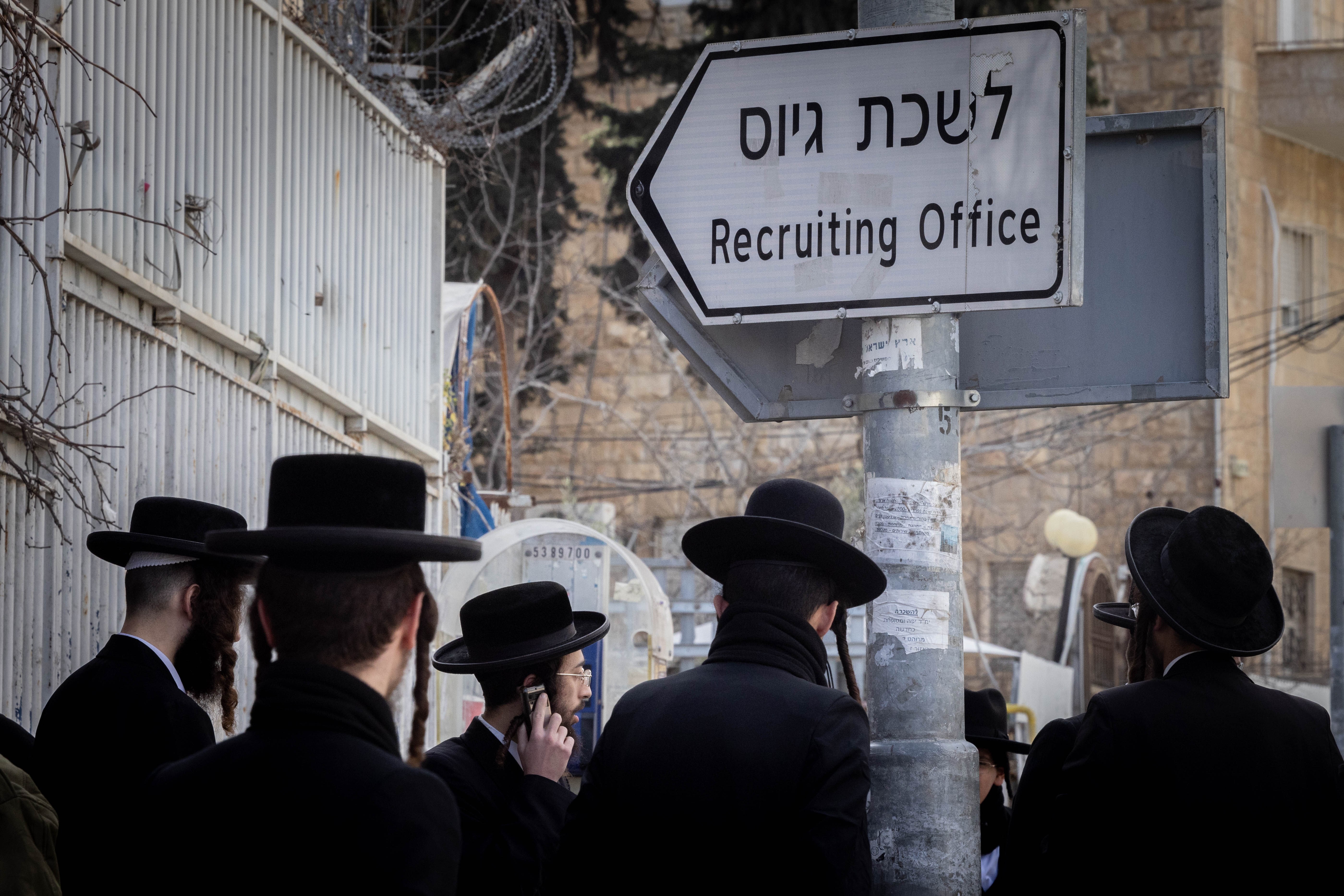
Large Majority of Jewish Israelis Want Changes to the Conscription Law
Written By: Prof. Tamar Hermann, Yaron Kaplan
Most Israelis would like to see the exemption given to the Haredi community changed; when asked whether the Israel can continue relying on the US's support, public opinion was divided, with an inclination toward continued reliance; around half of Israelis think Israel's standing in the international arena is not good.
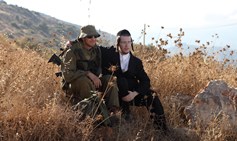
Development of the Haredi Exemption Law
Written By: Prof. Yuval Shany, Adv. Mirit Lavi
The history of the ultra-Orthodox exemption from service in the Israeli Defense Force (IDF), from the 1948 until today.
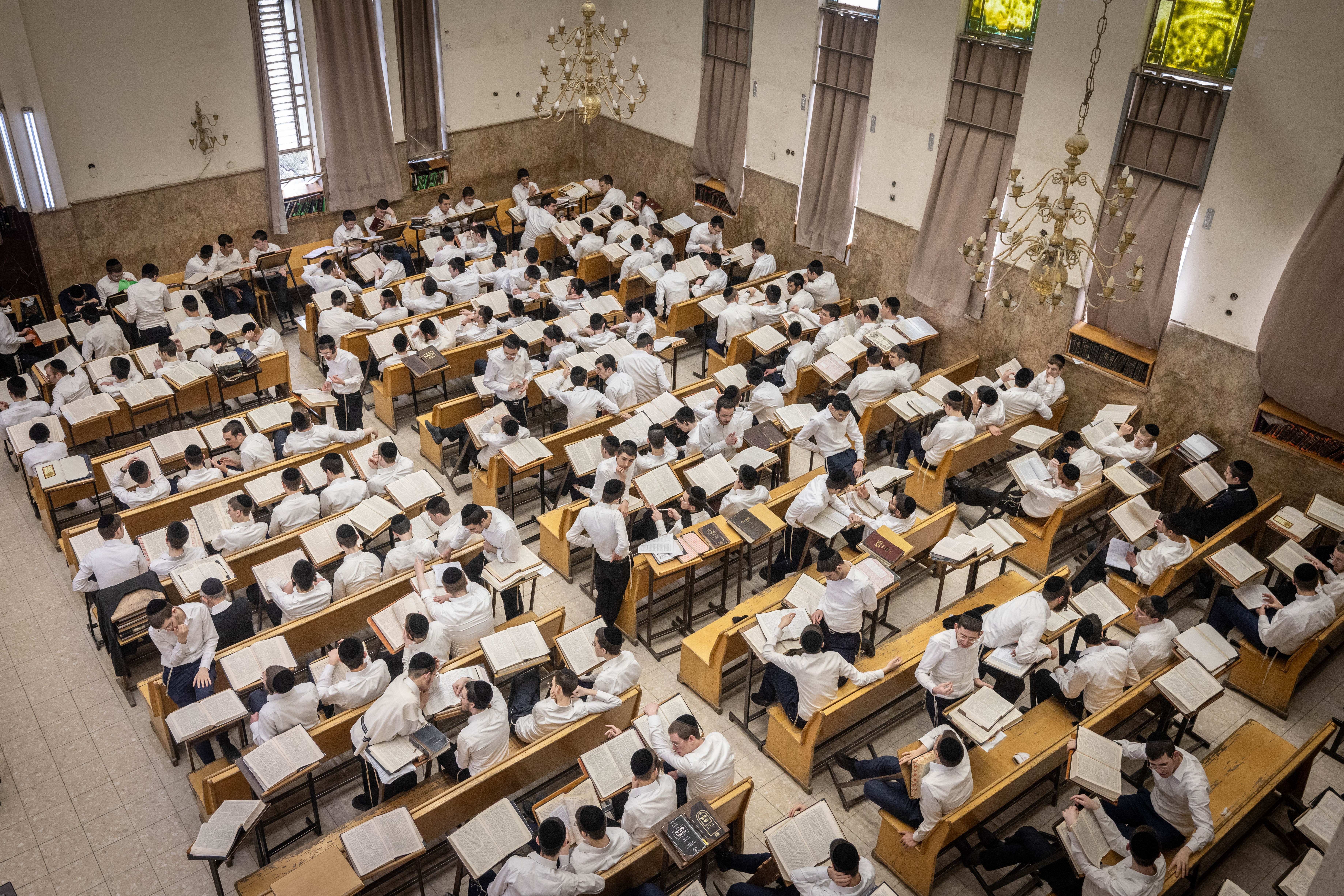
IDI Analysis: 7.3% Surge in Yeshiva and Kollel Students
Written By: Yohanan Plesner , Dr. Gilad Malach
Yohanan Plesner, president of IDI and head of the 2012 Plesner committee which sought to implement a model of "service for all," and Dr. Gilad Malach, head of the ultra-Orthodox program at IDI, share their analysis of the rapid increase in the number of yeshiva and kollel students over the past year.
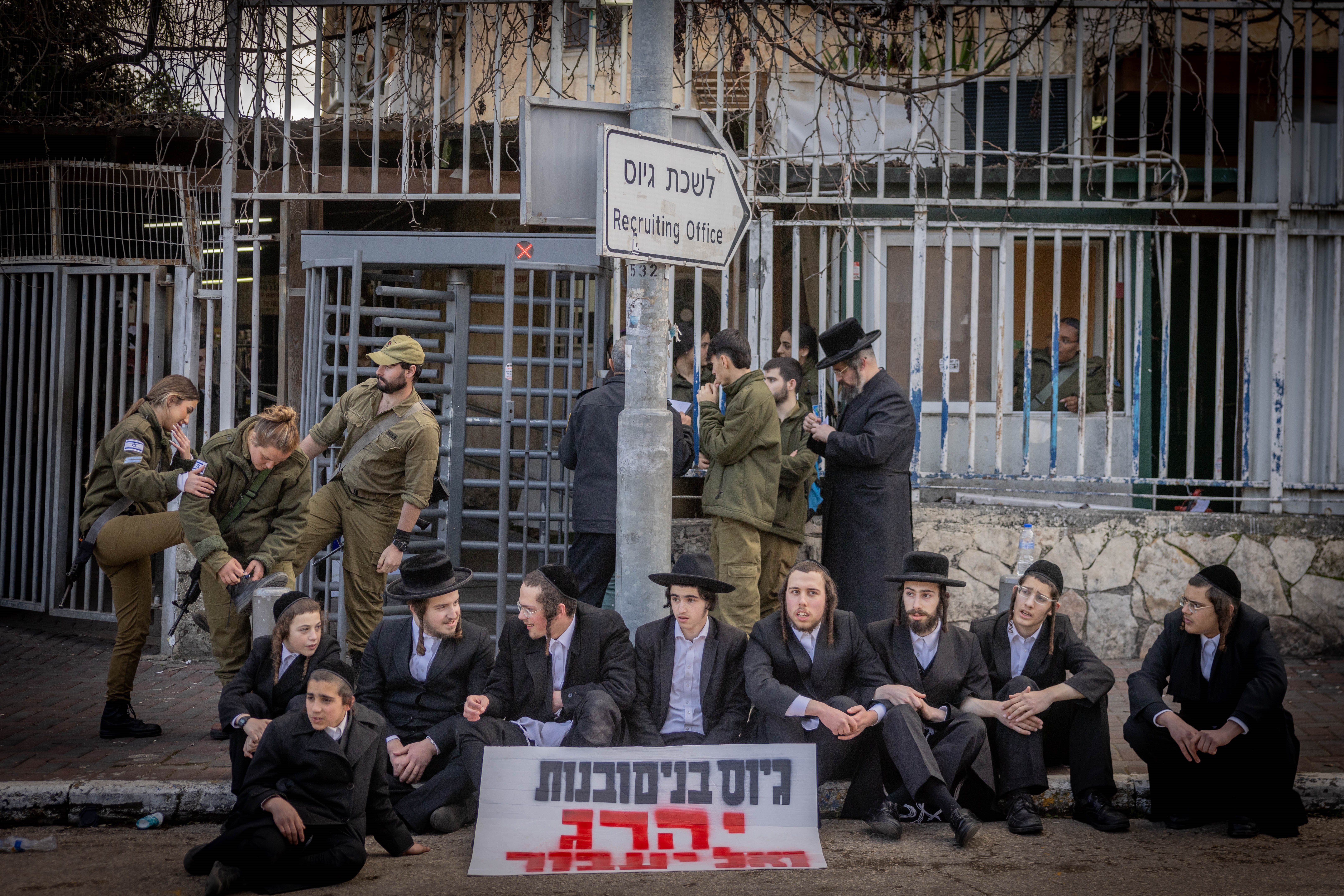
Explainer: The Supreme Court hearing on (non) recruitment of ultra-Orthodox men and budgeting of yeshivas
Written By: Adv. Shlomit Ravitsky Tur-Paz
What is the connection between the expiration of the conscription law and the budgets for yeshivas? What exactly was discussed in the Supreme Court and is the state in violation of the law? Bottom line, will the ultra-Orthodox be recruited, or not?
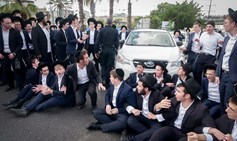
Follow the Money: On the War, Drafting the Yeshiva Students, and the State Budget
Written By: Prof. Benjamin Porat
The legal basis for deferring military service for Yeshiva students no longer exists, removing legal justification for the transference of funds to religious institutions with students under 26. Funding for Torah study institutions is the most substantial question that needs to be addressed at the current time, when Israeli society is rethinking its relations with the Haredi public.
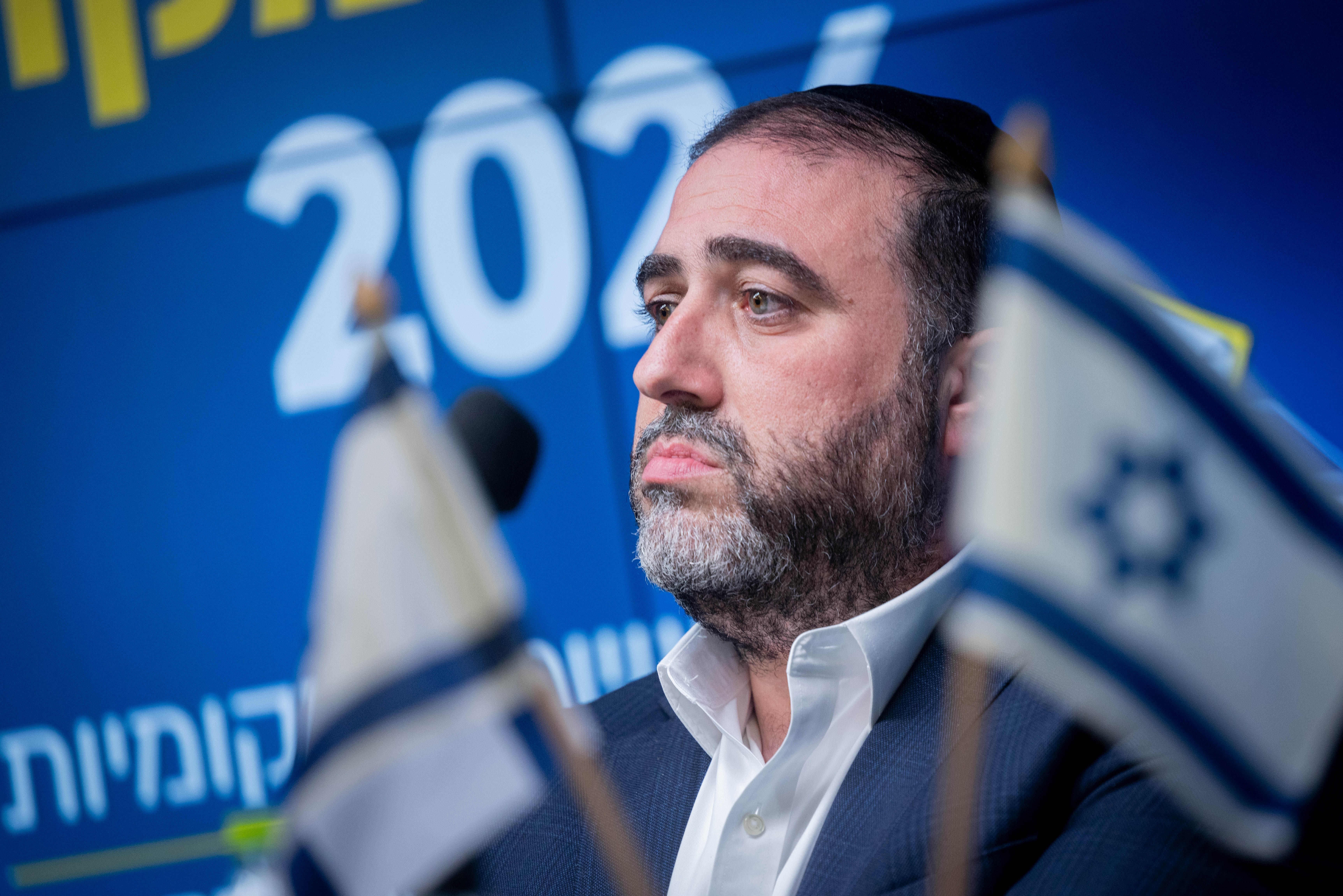
Rabbinical Elites Versus Traditionalists: IDF Conscription Law Reveals Rifts in Shas Party
Written By: Eliyahu Berkovits
Internal struggles between factions within the Sepharadic ultra-religious movement Shas are only beginning. The absence of the unifying figure of Rabbi Ovadia Yosef is still sorely felt, and only time will tell whether the rabbinical elite or the Knesset members representing a moderate electorate will gain the upper hand.
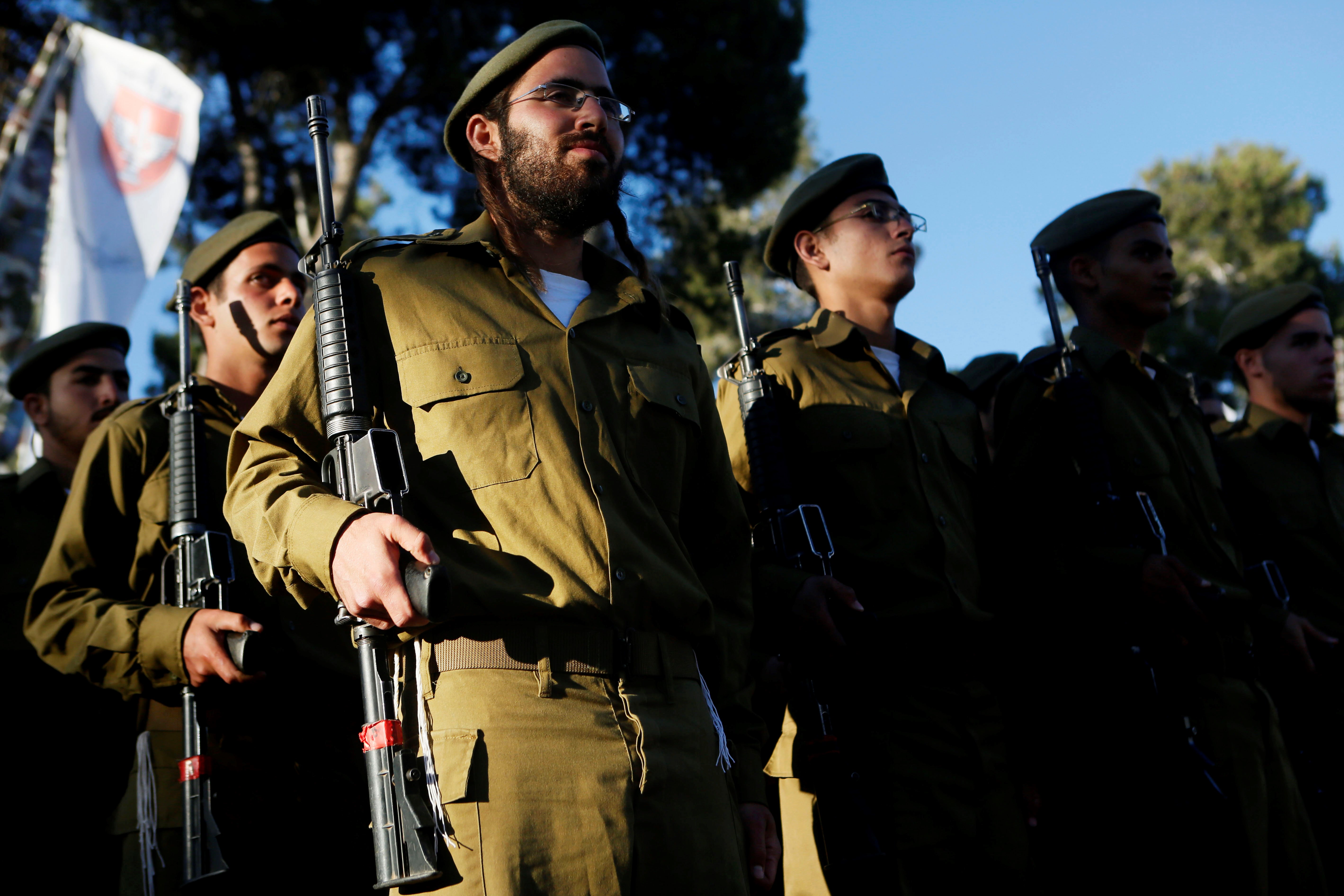
The Modern Haredi, As Envisioned by Rabbi David Leibel
Written By: Eliyahu Berkovits
Recently, a new answer to the dilemma of the 'modern Haredi' has been advanced enthusiastically by Rabbi David Leibel, one that maintains religiosity while increasing civic participation in the economy and in defense of Israel.
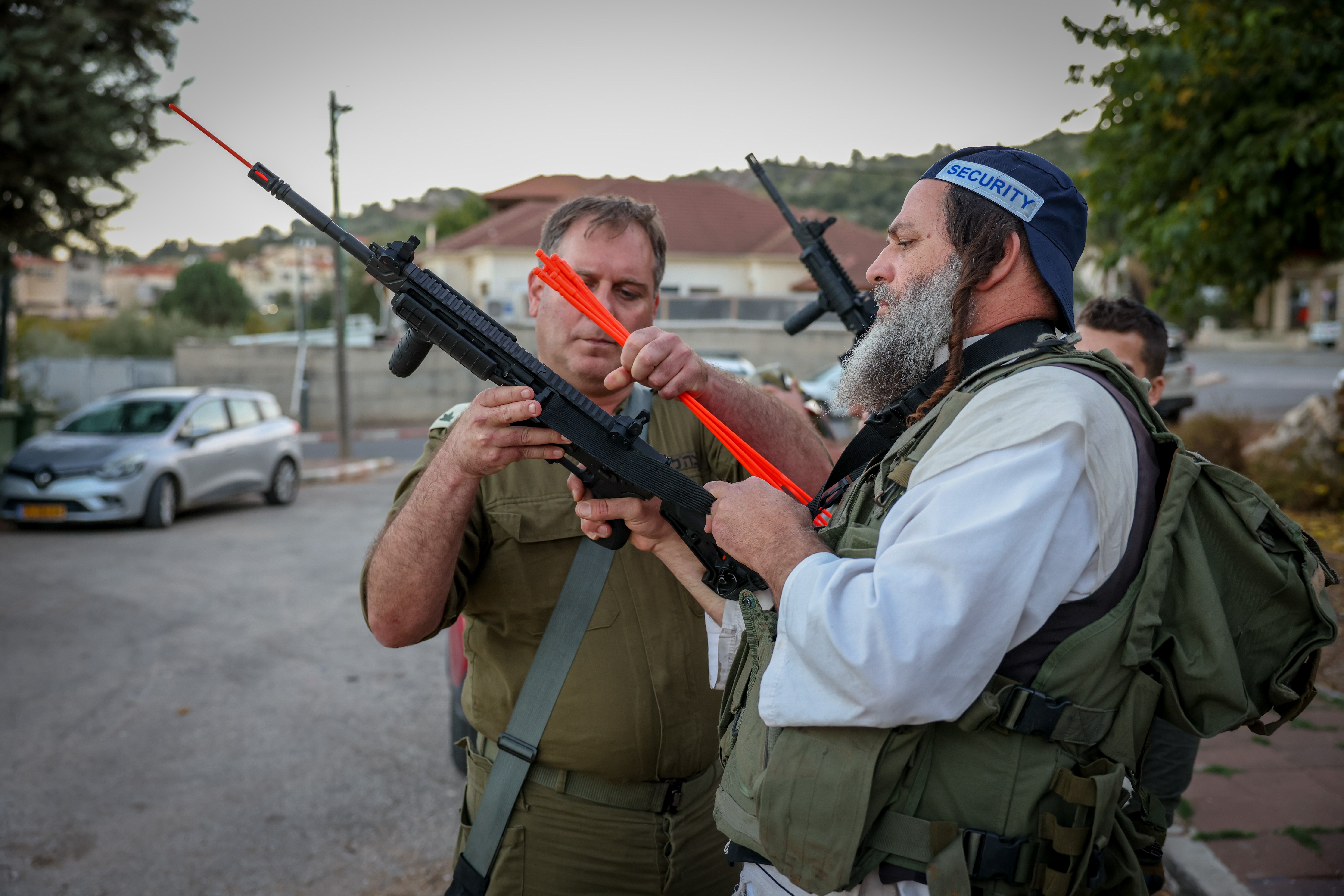
Haredi Enlistment for the Current War with Hamas is a Sign of a New Model of Rabbinic Leadership
Written By: Tehila Gado
The heads of the established traditional Haredi yeshivot have instructed their institutions to continue studies as normal during the current state of emergency, in accordance with the belief in the power of Torah study to protect the people of Israel. By contrast, the messages heard from various other rabbis reflect an understanding of changing needs and offer a blueprint for a new leadership vision.
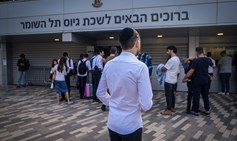
Haredi Enlistment In the IDF – A New Normal?
Written By: Eliyahu Berkovits
A growing number of Haredi men are volunteering for the IDF following the outbreak of the war against Hamas. This trend may signify that the “modern Haredi” phenomenon may be developing into a real movement.
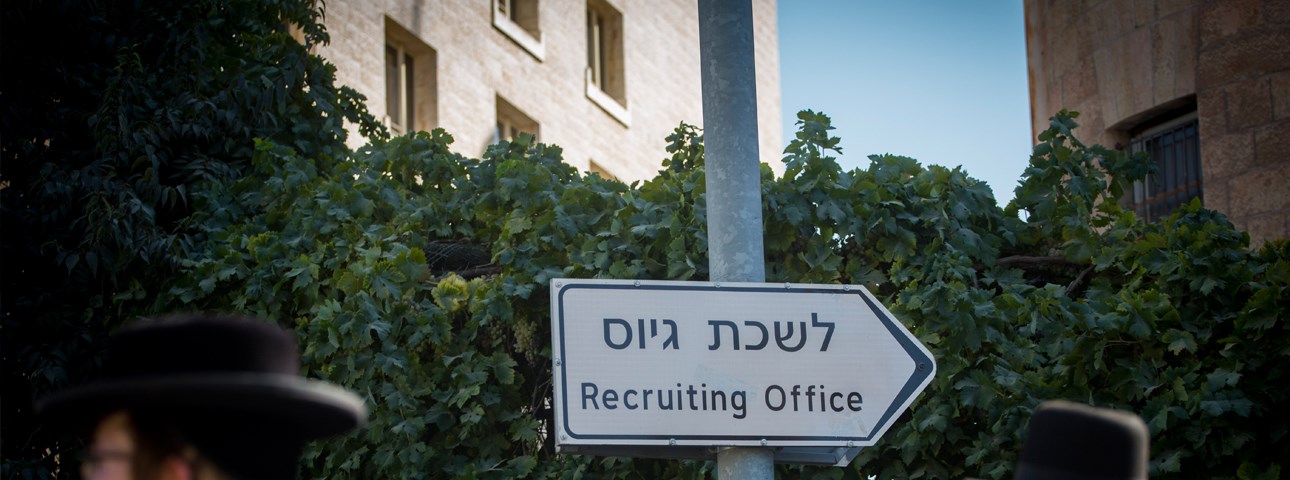
The IDF ‘Israel Service’ Plan is Complicated and Costly
Written By: Dr. Asaf Malchi
How would different tracks of enlistment change the longstanding Israeli ethos of service and sacrifice for the state and society?
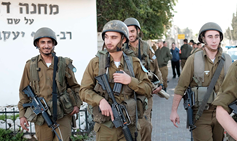
The IDF’s Greatest Challenge
Written By: Yohanan Plesner
The model underlying the IDF’s success is in grave danger - we must have the courage to change its outdated model of service
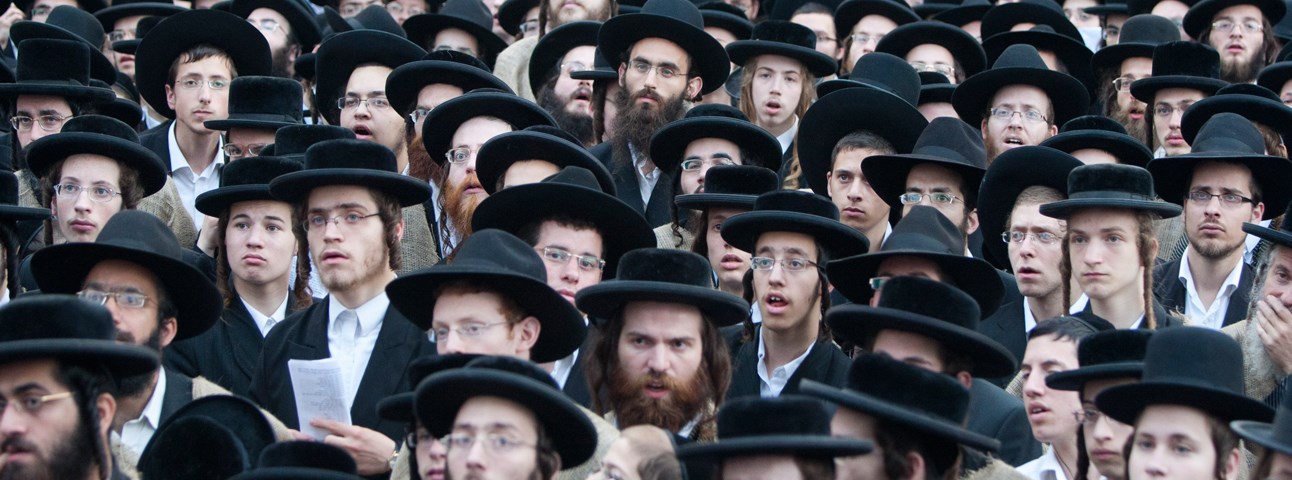
Two Wrongs Don’t Make a Right
Written By: Prof. Amichai Cohen, Prof. Yuval Shany
Even if we accept the argument that lowering the exemption age exacerbates existing discrimination, we should still assess the proportionality of this harm. Basic rights such as equality are not absolute, and are sometimes subject to restrictions in the face of a pressing public interest.

A Blow to the IDF as the ‘People’s Army’
Written By: Prof. Yedidia Z. Stern
A proposal by the panel appointed to investigate ultra-Orthodox enlistment to lower the exemption age defies multiple High Court rulings

What Really Lies behind the Rabbis’ Directive on Modesty?
Written By: Dr. Idit Shafran Gittleman
What really lies behind the most recent rabbinical directive on modesty in the IDF - and how does it pits religious soldiers against IDF's core values to the extent of risking insubordination.
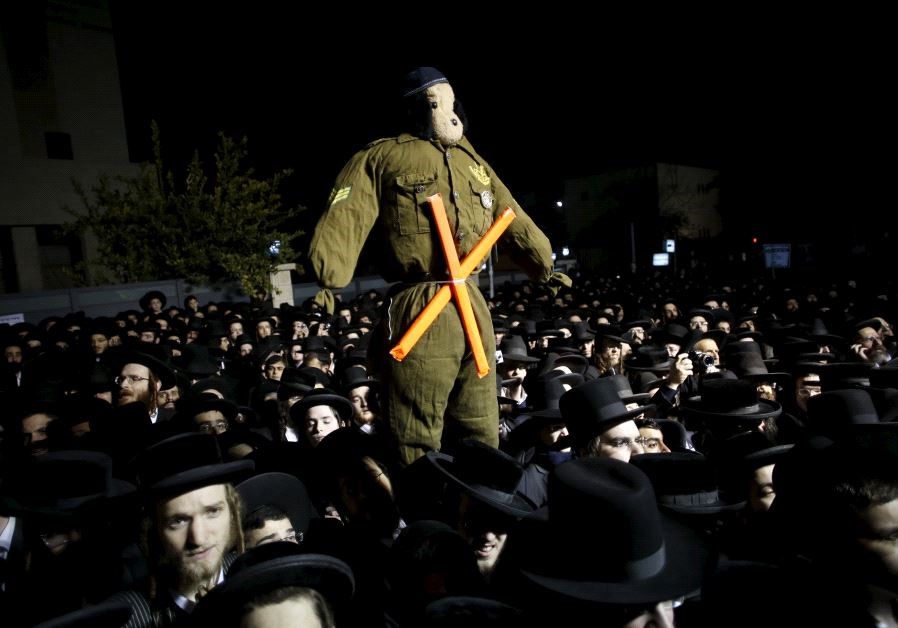
Ultra-Orthodox Service in the IDF: An Ongoing Struggle
Written By: Dr. Gilad Malach
The tension between the "military service for all" and "exemption for all" represents the tradeoff between the quest for equality and the existing political-social reality.
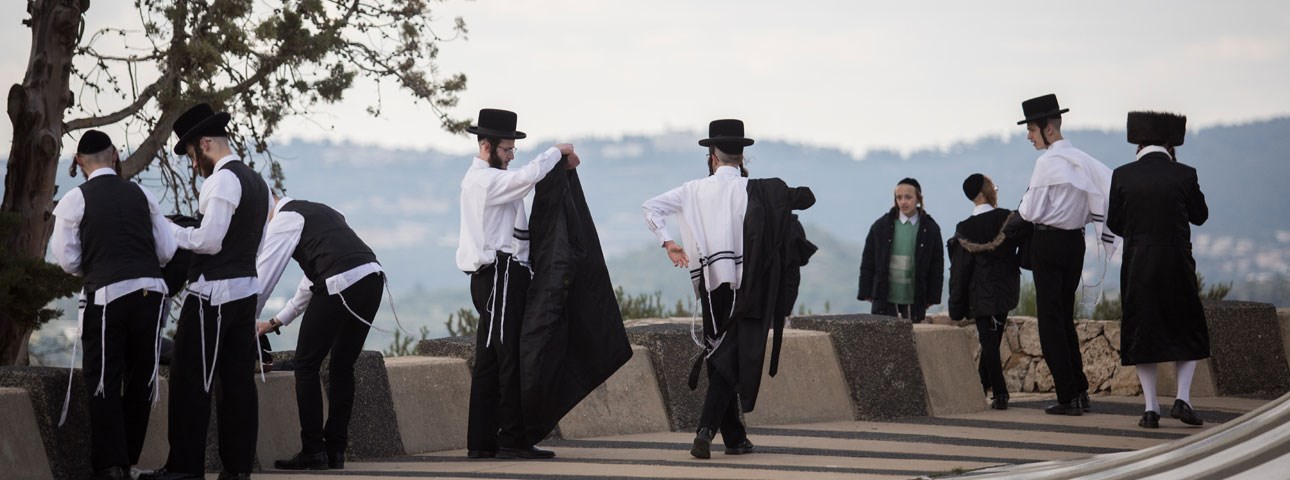
Ultra-Orthodox National Civic Service
Written By: Dr. Asaf Malchi
What is Wrong with the National Civic Service program for the Ultra-Orthodox and How to Reform It?
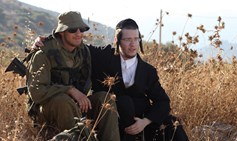
Climbing up the Socioeconomic Ladder: Military Service among the Ultra-Orthodox
Written By: Dr. Asaf Malchi
Even though military service seems to be one of the most blatant threats to the ultra-Orthodox lifestyle, it has become a rather attractive channel for broad segments of the community.

Citizenship and Military Service in Ultra-Orthodox Society
Written By: Dr. Asaf Malchi
More and more ultra-Orthodox (Haredi) Israelis are enlisting in the IDF, driven by personal, financial, and professional motives, with military service seen as an “entrance ticket” to Israeli society and to the labor market. But military service also introduces them to the shared components of identity and citizenship linking them to the state and its values, and enabling them to identify with others, from outside their community.

Israel needs a draft law that will uphold the principle of civic equality
Written By: Yohanan Plesner
Now is the time to rise above petty politics and pass a draft law that will uphold the principle of civic equality in Israel.
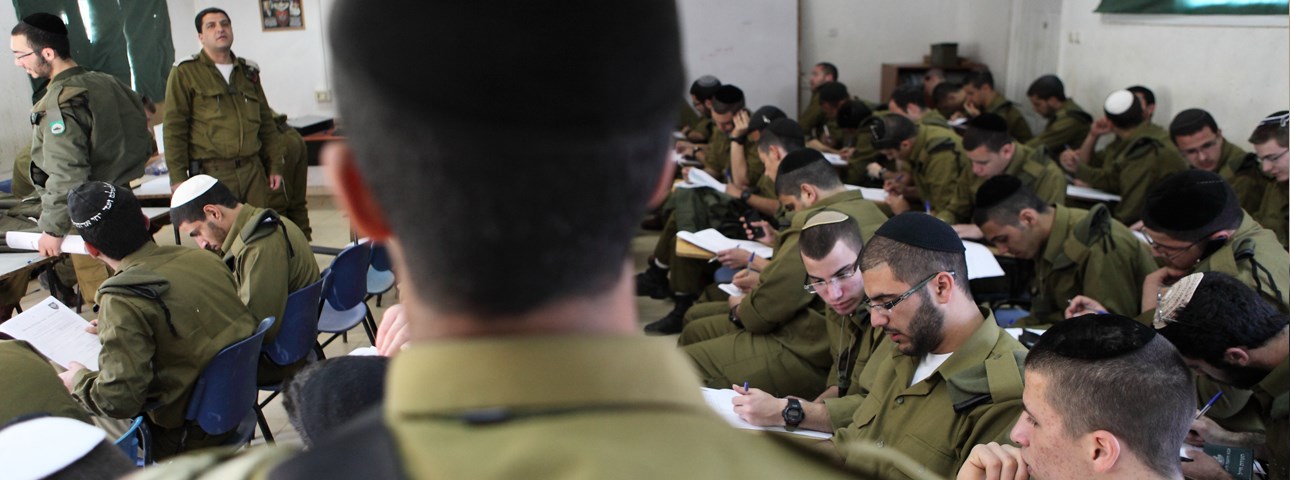
Proposal for Amending Ultra-Orthodox Conscription Plan
Written By: Yohanan Plesner , Prof. Amichai Cohen, Dr. Gilad Malach
IDI puts forth analysis of why the proposed conscription plan for the ultra-Orthodox is problematic and offers an alternative approach
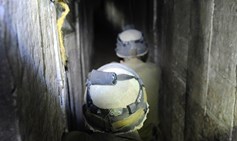
What is the State’s Obligation to Soldiers who have been Captured while Fulfilling their Duty?
Written By: Admiral (Res.) Amichay (Ami) Ayalon, Amichai (Ami) Ayalon
In an op-ed soon to be published by the Jerusalem Report, the former head of the Shin Bet security service argues that mutual responsibility is the cornerstone on which the resilience of Israeli society is founded, and is most strongly expressed in the commitment of the government of Israel to do everything possible to secure the release of its captured soldiers.
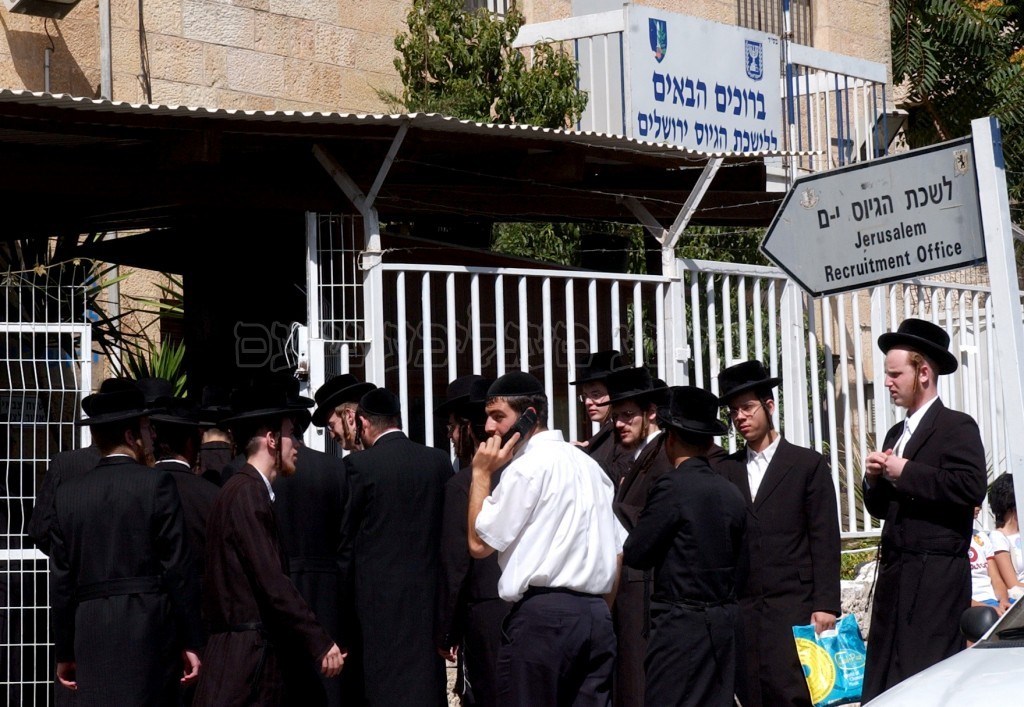
The Charedi Draft: Here We Go Again
Written By: Prof. Yedidia Z. Stern
The desired result could have been achieved quietly and efficiently had the Knesset adopted a rational arrangement that would encourage military service through positive and negative economic incentives. (This article was originally published in the Jewish Journal of LA.)
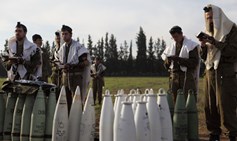
The Haredi Draft: Snakes and Ladders
Written By: Prof. Yedidia Z. Stern
Prof. Yedidia Stern analyzes the problems with past proposals to integrate the ultra-Orthodox sector into the IDF, and proposes a new solution.
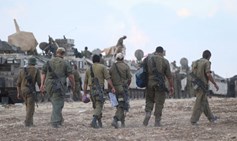
Is There a Place for God in the Israeli Army?
Written By: Prof. Yedidia Z. Stern
In an article in the <em>Jewish Week</em>, IDI Vice President Yedidia Stern discusses the question of whether it is appropriate for commanders to use religious rhetoric in motivating their soldiers, and stresses the need for the Israeli army to represent all.
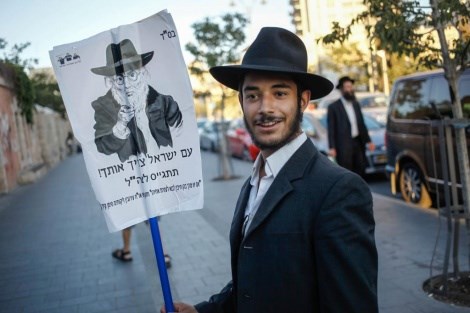
Ultra-Orthodox Integration: It Takes Two to Tango
Written By: Haim Zicherman
In an op-ed in Ynet News, IDI researcher Dr. Haim Zicherman discusses the steps that Israeli society must take in order to enable ultra-Orthodox men to integrate into the Israeli army and workforce.
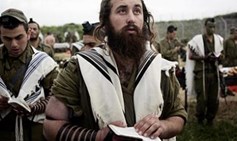
The IDF and the Ultra-Orthodox
Written By: Haim Zicherman
As the Knesset prepares to vote on the "Draft Law" designed to regulate the service of ultra-Orthodox men in the Israel Defense Forces, Dr. Haim Zicherman surveys the current situation within Israel's Haredi community.
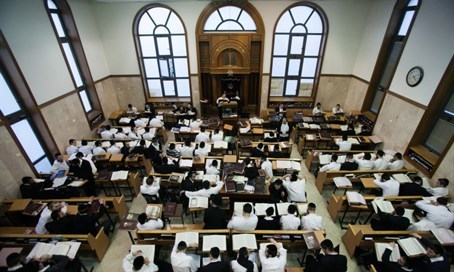
An Unequal Share of the Burden? The Truth about the Hesder Yeshivot
Written By: Prof. Benjamin Porat
Do students in the religious Zionist hesder yeshivot really contribute less to the IDF than other men who serve? IDI Researcher Dr. Benny Porat does the math and comes to an interesting conclusion.
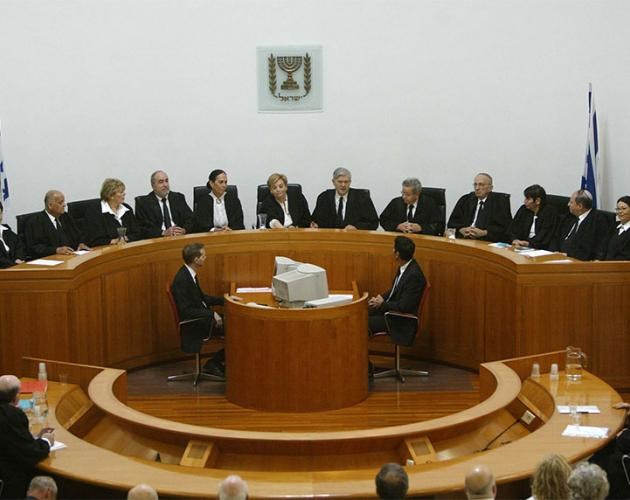
The Haredi Draft: Is the Shaked Committee's Bill Destined to be Overturned?
Written By: Prof. Yedidia Z. Stern
As the Shaked Committee begins to vote on its proposal for the Haredi draft, Prof. Yedidia Z. Stern warns that the proposal's recommendation to exempt Haredi men of draft age during a three-year "adjustment period" is both inequitable and ineffective.
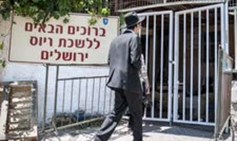
The Haredi Draft: Equality Now?!
Written By: Prof. Yedidia Z. Stern
On November 21 2013, Prof. Yedidia Z. Stern appeared before the Shaked Committee and argued that criminal sanctions are not recommended for reaching conscription goals. In an op-ed in Makor Rishon, he explains why.
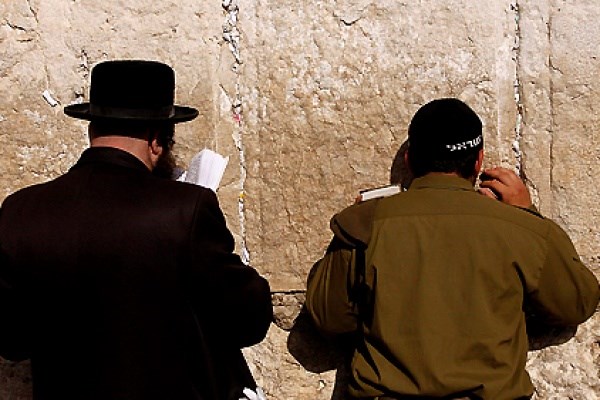
How Can We Draft the Ultra-Orthodox with Consent?
Written By: Prof. Yedidia Z. Stern
Is it possible to draft the ultra-Orthodox and integrate them into Israel's society and economy in a mutually-agreeable manner that encourages solidarity between the different sectors of the Jewish people? Prof. Yedidia Z. Stern shares thoughts on wars between brothers and brothers-in-arms.
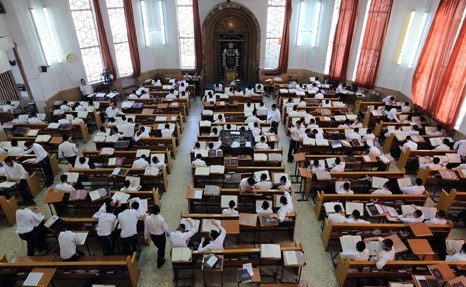
The Ultra-Orthodox Draft: Crossing the Third Rubicon
Written By: Prof. Yedidia Z. Stern, Haim Zicherman
Prof. Yedidia Z. Stern and Attorney Haim Zicherman stress the need to break down barriers that are preventing Haredi service in the army and integration in the labor force, and warn against passing a popular but ill-advised reform.

Haredi Integration: Not by Re-Education
Written By: Haim Zicherman
IDI researcher Attorney Haim Zicherman warns against attempts to integrate ultra-Orthodox Jews into the army by encouraging them to abandon their lifestyle, and calls for developing mechanisms that will accept and respect their values.
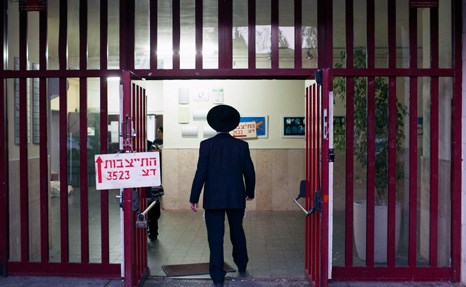
The Proposals for Drafting the Ultra-Orthodox in Israel: The Issues at Hand
Written By: Prof. Mordechai Kremnitzer
IDI's Prof. Mordechai Kremnitzer critiques various aspects of the proposals for integrating the ultra-Orthodox into the army and calls on the Israeli public to stand firm on its demand for an arrangement that is fair and equitable.

The Haredi Draft: The Need for an Alliance of the Moderates
Written By: Prof. Yedidia Z. Stern
Prof. Yedidia Stern calls for a historic alliance between religious and secular moderates that will yield a solution that will that will yield a solution that addresses the need for ultra-Orthodox army service while taking into account the most important values of the Haredi community.

The Need for Equal Sharing of the Burden and Strengthening of Torah Study
Written By: Prof. Benjamin Porat
The need for the ultra-Orthodox community in Israel to share the burden of military service and participate equally in the Israeli economy was a central issue in the 2013 elections. IDI researcher Dr. Benny Porat shares his thoughts on how to bring about this change in the Haredi community.
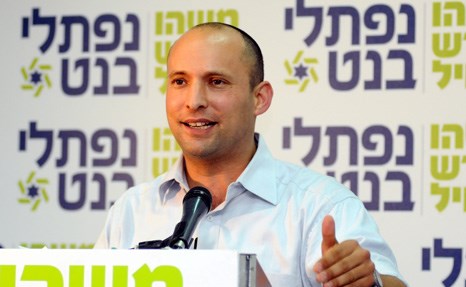
Habayit Hayehudi and Refusal of Orders: The Real Question
Written By: Prof. Yedidia Z. Stern
Naftali Bennett's statement that he would refuse orders if commanded to evacuate settlements raises questions about the type of insubordination that he and his party condone. In an op-ed in Yedioth Ahronoth, Prof. Yedidia Stern calls on Habayit Hayehudi to clarify its position on the matter.

Israeli Public Opinion on Drafting Haredi Yeshiva Students
Written By: Dror Walter, Chanan Cohen
An analysis of Israeli public opinion on the issue of drafting ultra-Orthodox yeshiva students, as revealed in polls conducted by IDI's Guttman Center for Surveys from 1986 through 2009.

The Haredim and the State of Israel
Written By: Prof. Yedidia Z. Stern, Jay Ruderman
In an op-ed in The Jerusalem Post, IDI's Prof. Yedidia Stern, who served on the Plesner Committee for Equality in National Service, and Mr. Jay Ruderman analyze the Haredi community's reluctance to serve in the Israeli army and present an approach that will facilitate Haredi integration into Israel's army and society.

Ultra-Orthodox Conscription: Making It Work
Written By: Momi Dahan
Will the High Court of Justice’s refusal to extend the Tal Law indeed reduce the inequality of burden sharing in Israeli society? IDI Senior Fellow Prof. Momi Dahan does not think so, and argues that ultra-Orthodox Jews in Israel should be exempted from the army and allowed to work, so as to assume their fair share of the tax burden.
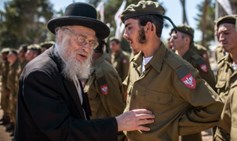
Do Not Put an End to Ultra-Orthodox Army Service
Written By: Haim Zicherman
Following the dissolution of the Committee to Advance Equality in Sharing the Burden, committee head MK Yohanan Plesner submitted proposals for alternatives to the Tal Law. In this article, IDI Researcher Attorney Haim Zicherman, who served as the content coordinator of the Plesner Committee, warns that some of those measures were personal recommendations rather than recommendations of the Committee, and may reverse trends of increasing army service by ultra-Orthodox Jews.

The Tal Law: Judicial Responsibility at its Best
Written By: Prof. Mordechai Kremnitzer
Prof. Mordechai Kremnitzer presents a contrasting view to Prof. Yedidia Stern's assertion that the Israeli Supreme Court's ruling on the exemption of ultra-Orthodox men from military service in Israel is "<a href="http://en.idi.org.il/analysis/articles/judicial-activism-at-its-height">Judicial Activism at its Height</a>."

If They Give, They Will Receive
Written By: Yair Sheleg
In this response to the Supreme Court ruling on the Tal Law, IDI Senior Researcher Yair Sheleg asserts that the exemption of ultra-Orthodox men from military service is an unparalleled <em>Hillul Hashem</em>—a desecration of the Name of God, and shares his views of a possible solution.

Make the Ultra-Orthodox Serve
Written By: Yair Sheleg
IDI Vice President of Research Prof. Yedidia Stern sets the controversy over mass transportation on Shabbat and holidays in Israel in a broader context, and distinguished between the need for an Israeli-Jewish Shabbat (Sabbath) rather than a religious Shabbat.

Conscription of Haredi Yeshiva Students to the IDF and the Emerging Constitutional Crisis
Written By: Dr. Nadav Dagan, Prof. Amichai Cohen, Dr. Amir Fuchs
The Supreme Court is currently conducting a hearing that could signal a constitutional crisis—a contempt-of-court motion filed in the case of the Movement for Quality Government in Israel v. Minister of Defense (5819/24), which argues that the government has not complied with the Court’s ruling of November 19, 2025 requiring it to formulate an effective enforcement plan for ultra-Orthodox (Haredi) conscription.
This explainer reviews the background to the Court’s ruling, and considers whether Israel merely faces the risk of a constitutional crisis, or whether such a crisis is already here.

The Missed Opportunity of the Century: The Haredi Exemption Law
Written By: Yohanan Plesner
The government and the coalition have been given a second chance – which has come at a heavy price of blood and suffering – to turn this crisis into an opportunity and set the foundations for a new social covenant among Israelis.
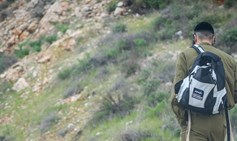
The “People’s Army”?
Written By: Dr. Asaf Malchi
This article presents the main milestones in the recurring attempts to put a satisfactory arrangement for the deferment of military service for yeshiva students in place. In doing so, it surfaces the changes that have occurred over time in the constitutional, legal, and public responses and attitudes on this issue.
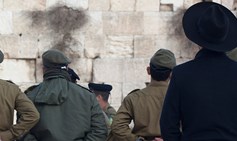
Ultra-Orthodox in the IDF: A Ticking Time Bomb
Written By: Prof. Yedidia Z. Stern
To encourage enlistment, Israel should adopt a conscription model that is cognizant of the ultra-Orthodox fear of erosion of their identity and employs both positive and negative economic incentives.
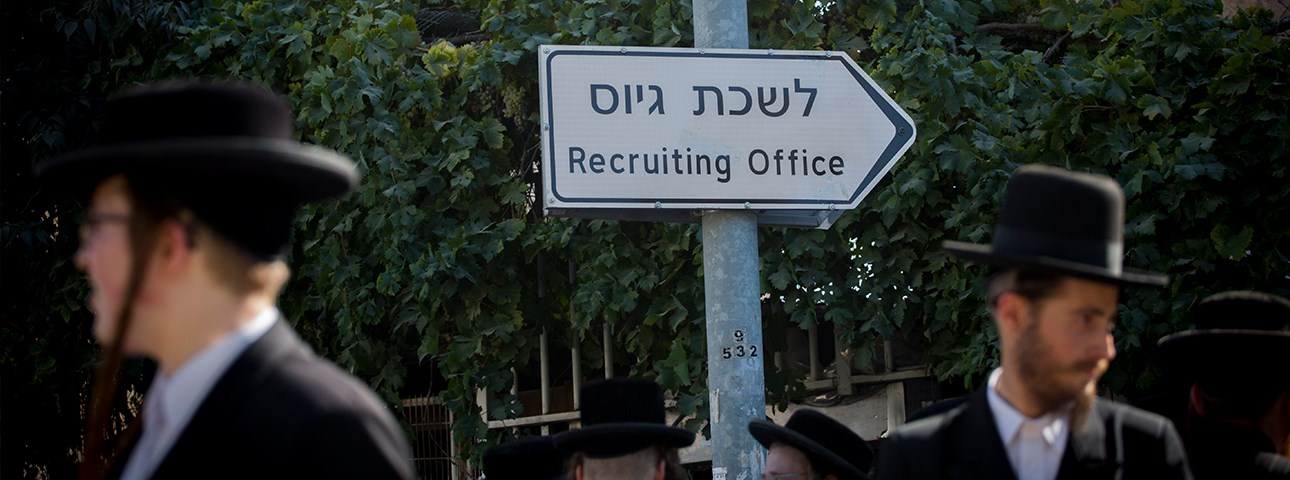
Supreme Court Strikes Down ultra-Orthodox Exemption From Military
Written By: Yohanan Plesner , Dr. Gilad Malach
IDI responds to high court ruling: “The time has come for our politicians to demonstrate leadership and work to enact a more equitable and effective arrangement.”
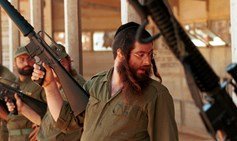
Springboard to Employment: How Ultra-Orthodox Men Benefit from IDF Service
Written By: Dr. Asaf Malchi
Army service is an extremely powerful “employment engine” for most ultra-Orthodox men whose religious education does not provide them with the general background or professional training necessary for joining the work force outside the ultra-Orthodox sector.



